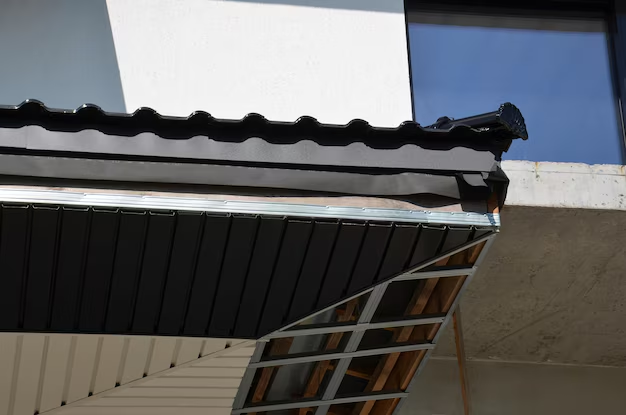Is Installing a New Roof Tax Deductible? Here's What Homeowners Need to Know
When it's time to replace your roof, you're faced with a significant financial decision. It's not just about picking the right materials and hiring a reliable contractor; the cost implications are substantial. So, the pressing question is: Can you get a tax deduction for your new roof?
Understanding the Tax Code
Home Improvements vs. Repairs: First, determine whether your new roof is classified as a "home improvement" or a "repair" according to the IRS. Unfortunately, simply replacing or repairing a roof doesn't qualify for immediate tax deductions. Typically, repairs are not deductible. However, when you make a significant improvement that adds value or prolongs the property’s life, it becomes part of your home's cost basis.
Cost Basis: Adding a new roof increases the cost basis of your home. This is crucial when you sell your property, as a higher basis means potentially lower taxable gains. For instance, if you originally purchased your home for $200,000, and you added a $20,000 roof, your new cost basis becomes $220,000. This adjustment can reduce your capital gains tax when you decide to sell.
Are There Any Tax Benefits?
Energy Efficiency Credits: If your new roof meets specific energy efficiency criteria, you might be eligible for energy credits. The Federal government occasionally offers credits for homeowners who install energy-efficient components, including qualifying roofs. Therefore, it's worth exploring if your roofing materials make you eligible for these credits.
Rental Property Owners: If the property is rented out, you may have different tax options. Depreciation deductions apply to rental properties, allowing you to write off the cost over many years. This strategy can provide notable tax benefits while spreading out the cost impact.
Broadening the Financial Perspective
With direct roof tax deductions limited, it's useful to consider alternative financial routes. While a tax angle might not relieve you instantly, exploring related financial support can still alleviate your financial load.
Government Aid and Financial Programs
- Home Improvement Loans: These loans can offer better rates than standard personal loans, making roof replacements more manageable.
- Energy Efficiency Incentives: Check federal and state programs for rebates on energy-efficient home components.
- Property Tax Deductions: Some areas offer deductions for home improvements that contribute to energy savings, enhancing sustainability credentials.
Exploring Broader Financial Solutions
Financial assistance isn't just about loans and tax breaks. Broadening your search can lead to additional savings and financial relief.
- Debt Relief Options: Consider discussing your situation with financial advisors if managing your roof expenses is creating debt.
- Credit Card Solutions: Some homeowners leverage credit card offers with no-interest periods to manage initial roof expenses. Ensure you're well-informed about terms to avoid high-interest pitfalls later.
Educational Opportunities
Lastly, emerging energy trends in housing offer educational grants or training credits, especially if you're keen on implementing eco-friendly home solutions. These can pave the way for both financial savings and enhanced home sustainability.
Quick Reference: Financial Assistance & Tax Considerations 🌟
- 🏡 Home Improvement Loans: Lower interest rates for home upgrades.
- 🌞 Energy Efficiency Credits: Possible qualifications for tax credits.
- 👫 Property Tax Relief: Check local incentives for energy-efficient improvements.
- 💳 Credit Card Strategies: Manage costs with zero-interest promotions.
- 📈 Depreciation (Rental Properties): Potential tax deductions over time.
- 📚 Educational Grants: Opportunities in sustainable construction practices.
Navigating through the financial options for a new roof can seem daunting, but knowing your way through potential deductions, incentives, and broader aid ensures you're making the best decision for both your home and finances.

